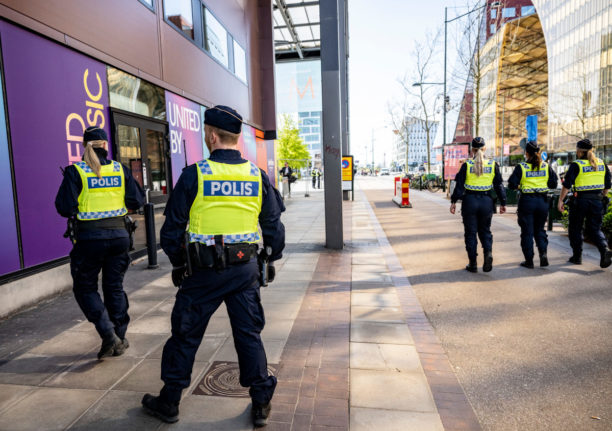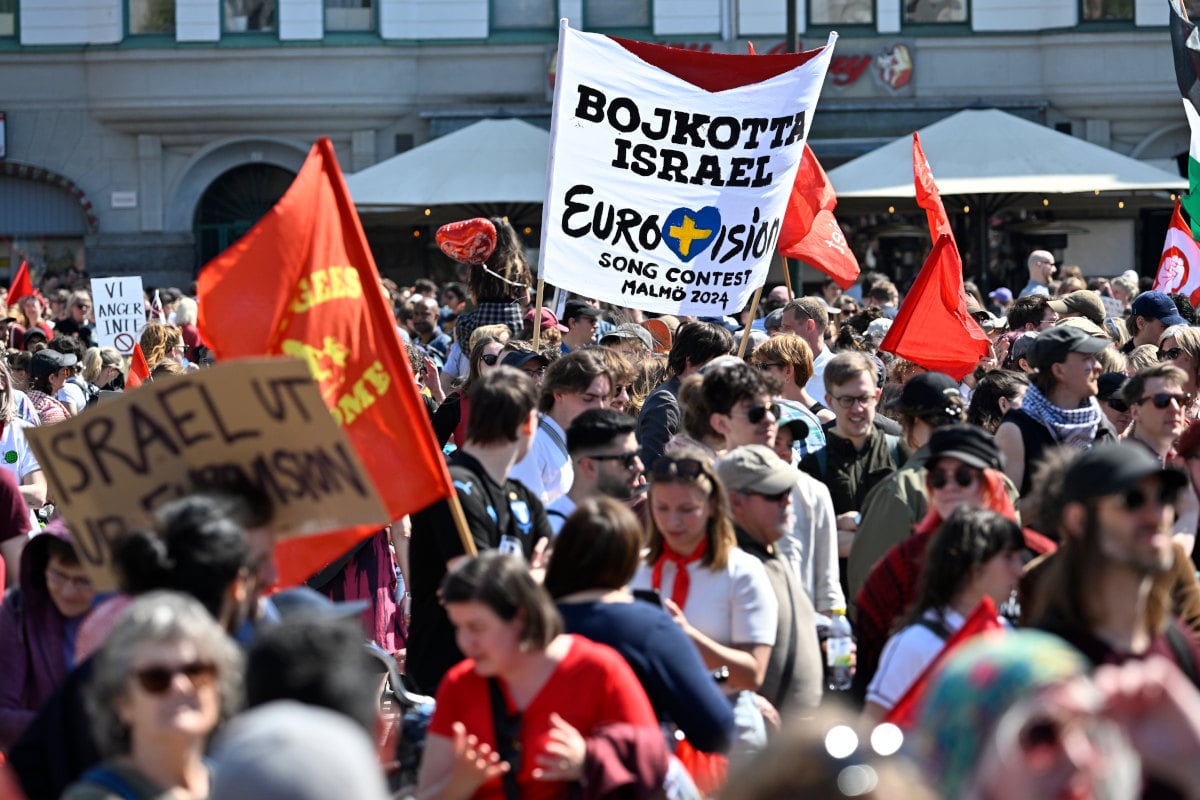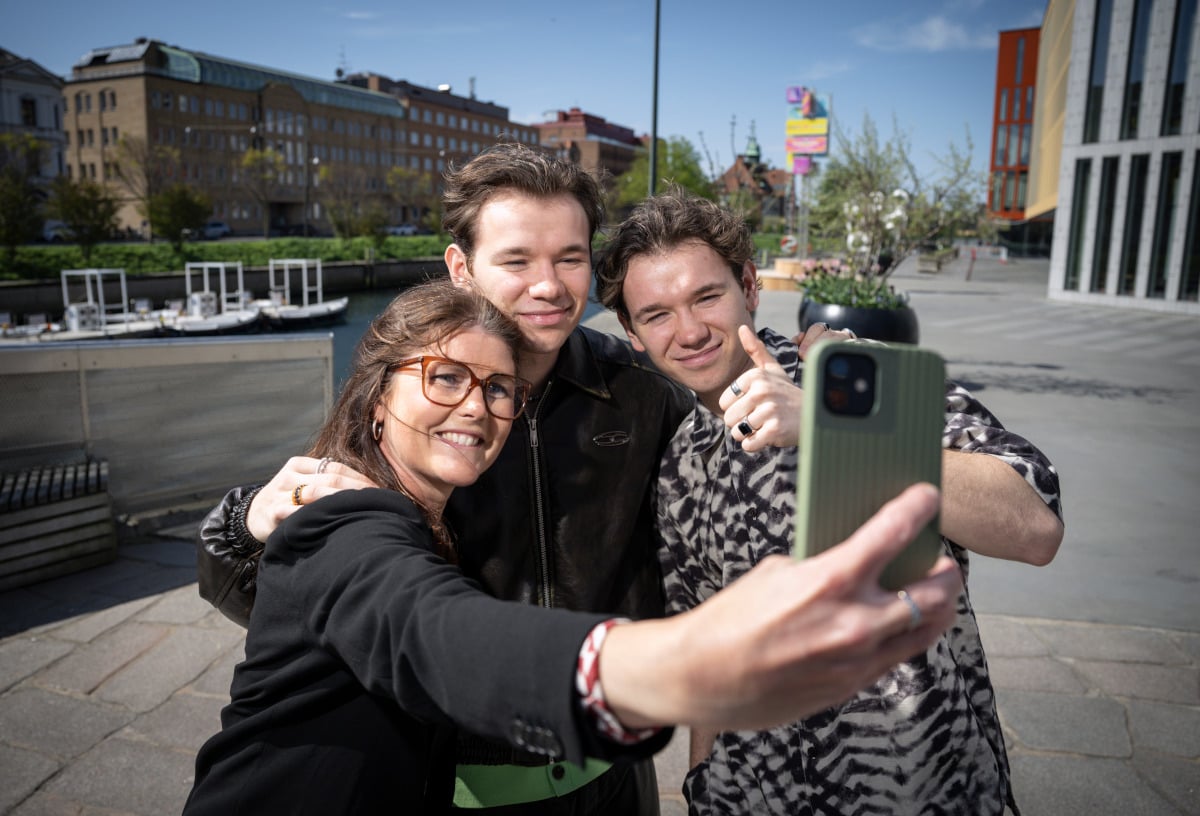January
The first public holiday of 2024 takes place on the first day of 2024. Here’s the full list of the rest of them.
The price of stamps will increase from January 1st. A letter weighing up to 50 gram will cost 18 kronor (or 36 kronor to send abroad) and a letter weighing up to 100 gram will cost 36 kronor.
January is a month when a lot of new laws usually come into force. We’ll cover these on The Local later this month.
Work permit holders may want to keep an eye on a new government inquiry which will release its report by January 31st. It’s expected to present suggestions for how Sweden could raise its work permit salary threshold to the median salary, and possibly also propose exceptions for certain jobs.
Sweden’s gender neutral parental leave insurance celebrates 50 years. It was introduced in 1974, for the first time enabling dads to receive benefits to stay at home with their young children. In its first year of existence, men claimed on average 0.5 percent of parental benefits. That share has since increased to 30 percent.
February
Sweden’s Riksbank will announce its next decision on the interest rate on February 1st. Experts are divided on whether it will raise the rate, leave it unchanged or lower it, with most currently leaning towards the latter two options. The interest rate was left unchanged at 4 percent in November.
Melodifestivalen, Sweden’s Eurovision trials, will kick off on February 3rd for five weeks of music, entertainment and fun – or a lifetime of earworms and wondering why you ever moved to Sweden.
Sweden’s annual book sale, when bookshops across the country sell books at reduced prices, will get under way on February 20th. Here’s a list of book recommendations from The Local’s archive.
The pensions agency starts sending out pension statements in January, with most people receiving them in February or March. You don’t need to do anything in response to them – it’s just a statement to keep you up to date – but if you want to plan your pension, there are a few tricks.
March
The clocks go forward one hour at 2am on March 31st and you’ll immediately notice that the evenings get longer. There are plans on an EU level to perhaps, maybe, some day scrap the change between winter and summer time, but it doesn’t appear to be happening soon.
Easter this year will take place at the end of March, with Swedish children starting the festivities by dressing up as witches and collecting pick ‘n’ mix for their Easter eggs on Maundy Thursday, March 28th. Good Friday, Easter Sunday and Easter Monday are public holidays.
April
If you don’t have to make any changes to your pre-printed Swedish tax declaration, submit it online by April 3rd and you will get any money you’re owed back in April. Here’s what you need to know about filing your Swedish taxes (note that the article contains the dates for 2023).
The Riksbank will announce another decision on the interest rate on April 26th.
The Swedish Scholastic Aptitude Test (SweSAT or högskoleprovet) will be held on April 13th. The exam is held twice a year and around 100,000 people usually sit it each year. It’s not compulsory, but many people use its results to get into university if they’re not able to do so on grades alone. It’s possible to sit the test even if you’re a foreign citizen without a Swedish personal number, but the test is held in Swedish apart from the section that tests participants on their English knowledge.
The last day of April is King Carl XVI Gustaf’s birthday (he will turn 78) but it’s also Walpurgis Night, when Swedes light bonfires and, if they’re university students, most likely get drunk.
May
The first day of May is Labour Day, which is marked by parties on the left side of the political spectrum organising May Day marches (förstamajparader). For something more bourgeois, head to Lund where the university choir will throw a concert to welcome spring.
If you’re sending in your tax declaration on paper rather than online, or if you had to make changes (for example if you sold property or applied for deductions), submit it by May 2nd at the latest.
Eurovision kicks off in Malmö on May 7th with the first semi-final, followed by the second semi-final on May 9th and the grand final on May 11th. Here’s what you need to know about visiting.
Järvaveckan (Järva Week) has grown to one of Sweden’s biggest political events in the last few years, with representatives from every major party attending. Held at the Spånga sports field in northern Stockholm, it is still young and vibrant enough to feel less elite than its older cousin, the Almedalsveckan (Almedalen Week) festival. This year it will take place from May 29th-June 1st.
The government has ordered Statistics Sweden and the National Board of Housing, Building and Planning to produce a list of “areas of exclusion” (utanförskapsområden) which will take factors such as benefits, crowded housing, election turnout, unemployment and crime into account. The first part of the report is to be presented by May 31st and the final report by October 15th.
June
June marks the start of Sweden’s famously long summer holidays.
Sweden Rock Festival in Sölvesborg comes highly recommended if you’re into rock music. Put June 5th-8th in your calendar.
Sweden’s National Day falls on June 6th. In 2024, it’s on a Thursday, so if you also book the Friday off you can get four interrupted days of holiday for only the “price” of one day of annual leave.
If you submitted your tax declaration by May 2nd, you will get any rebates you’re owed by June 4th-7th.
The elections for the European Parliament, which are held every five years, will take place on June 9th. If you’re an EU citizen over the age of 18, you can vote in the European elections in Sweden.
Speaking of Almedalen Week, it will be held on the island of Gotland between June 25th and 28th. Interest in the event has been declining in recent years, but some 40,000 people still attend every year, 95 percent of them coming from outside Gotland, where hotel prices shoot up every summer.
On June 29th, the Riksbank will announce its third interest rate update of the year.
The most important date for many Swedes this month is likely to be Midsummer’s Eve on June 21st. It’s traditionally a day spent in the countryside, eating pickled herring, drinking snaps and dancing around the Maypole. This is also the last public holiday before Christmas, so make the most of it.
July
July 1st is another date when a lot of new laws usually come into force in Sweden. We will cover these on The Local in the new year.
August
The autumn semester in schools and universities gets under way in August and early September, although the exact date depends on where in Sweden you live. Slowly, Swedes return to their workplaces from their summer cottages and it’s possible to get hold of them again.
Way out West is one of the most popular music festivals in Sweden. It will take place from August 8th-10th in Gothenburg.
Malmöfestivalen is one of the biggest events in Malmö (this year bested by Eurovision!). Head to the southern Swedish city for music, food and entertainment between August 9th and 16th.
September
The Swedish parliament will reopen on September 10th after the summer recess.
The government has until September 20th to submit its annual budget bill to parliament.
On September 21st, the Riksbank will announce its fourth interest rate update of the year.
October
This year’s Nobel laureates will be announced in early October.
On October 27th, it’s time to turn the clocks back for winter time.
November
The deadline for paying any tax arrears you owe is November 12th for most people.
On November 23rd, the Riksbank will announce its fifth and final interest rate update of the year.
December
Christmas season is again upon us. The most important dates in the Swedish calendar are the four days of Advent on every Sunday in the run-up to Christmas, Lucia on December 13th and Christmas Eve on December 24th. Did you know that thanks to how the public holidays fall in 2024, you can get 12 days off at Christmas this year despite only using up three days of your annual leave?
Sweden’s annual mellandagsrea (the post-Christmas sale) kicks off on December 26th.





 Please whitelist us to continue reading.
Please whitelist us to continue reading.
Member comments